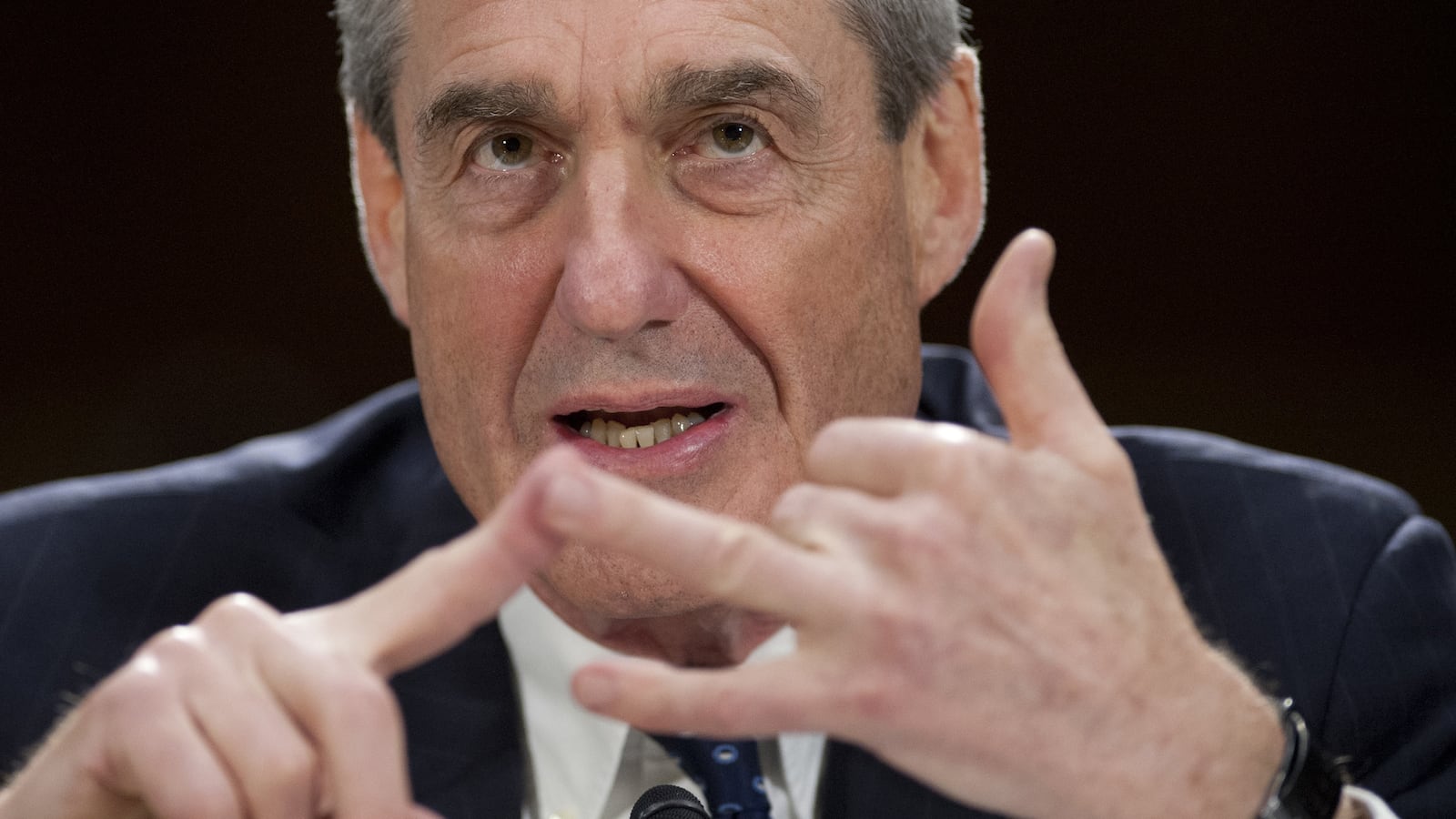Donald Trump just made his move against the Russia investigation.
By forcing Attorney General Jeff Sessions to resign and then going around the established line of succession at the Department of Justice by appointing a partisan loyalist, Matt Whitaker, to be the acting attorney general—one who will oversee the special prosecutor’s office—Trump has signaled his intent to end the Robert Mueller investigation.
There is no mystery here. Sessions wasn’t removed because of a disagreement over his hard-line stance on immigration. Trump has been crystal clear about what he wants in an attorney general: someone who will protect him. And when Sessions recused himself from overseeing the Russia investigation, he was no longer able to do that.
The choice of Whitaker, who reportedly will not recuse himself from overseeing the probe, is an obvious tell. First off, the move is quite possibly illegal. So why put at risk the authority of your acting attorney general? Because Whitaker is a Republican loyalist who wrote an op-ed a year ago outlining a strategy to kill the Mueller investigation by strangling it bureaucratically.
Mueller is dependent on the Department of Justice for his budget. The attorney general can stop him from issuing indictments and try to quash the release of any reports from the investigation to Congress. In an appearance on CNN last year, Whitaker previewed the play: “I could see a scenario where Jeff Sessions is replaced. It would be a recess appointment, and that attorney general doesn’t fire Bob Mueller but he just reduces his budget to so low that his investigations grinds to almost a halt.” Trump is now running that exact play.
Democrats will have the power to run a new investigation into Russia’s meddling once the new Congress takes office in January. But they shouldn’t wait. Instead, they must demand now that Whitaker grant the Mueller investigation full independence, effectively making Mueller his own boss. This is what happened during Watergate. After President Richard Nixon initiated the “Saturday night massacre”—removing the attorney general, deputy attorney general, and the special counsel investigating Watergate—Robert Bork, who suddenly became acting attorney general, gave the new special prosecutor full authority over the investigation. If the “Bork standard” was good enough for Nixon, it is good enough for Trump.
Democrats should also send a message to career officials by making clear that anyone who participates in this effort to obstruct justice will be held to account, whether that is the president, his acting attorney general, or other DOJ officials.
While there are expectations that Mueller may have a “break glass” plan for this very scenario, such as unsealing additional indictments or having his report ready to go, there is no guarantee this is the case. As an employee of the Executive Branch, Mueller simply may not have many great options in this showdown with the chief executive.
And the public may not even know if a showdown has happened. For weeks, Washington has been abuzz about coming activity from the investigation. Mueller’s grand jury is clearly busy, and an indictment of Roger Stone appears imminent, as Stone himself expects to be indicted. Should no indictments come, should the Mueller investigation, which was quiet before the election, stay quiet, then it is likely that the investigation is being strangled to death.
If Whitaker refuses to meet the Bork standard and give Mueller full independence, the new Democratic Congress will need to act right away in January. The House Judiciary Committee will need to investigate immediately to determine whether the investigation is being killed (or has been) from within. That should involve bringing Whitaker, Sessions, Deputy Attorney General Rod Rosenstein, and possibly Mueller and other officials in the Justice Department before Congress to determine whether the investigation is being obstructed.
Should it become clear that Mueller is not able to investigate—whether because he is fired, his investigation is being strangled, or he resigns in protest—Democrats in Congress will have to pick up where Mueller left off. They will need to hold immediate hearings into whether the president is abusing the power of his office to obstruct justice and whether his campaign did indeed conspire with Russia. They will need to immediately subpoena documents and records related to the investigation, such as any report prepared by the special counsel, witness lists, any information that was transmitted to the special counsel’s office from another government agency, and any materials related to the decision by the acting attorney general to overrule the special counsel on the filing of charges related to any individual or group. They will need to hold public hearings, including calling Mueller, as well as key figures in the investigation like Donald Trump Jr. to publicly testify. They will need to demonstrate to the American public that this is a clear abuse of power, and then they must take steps to hold Trump accountable.
There will be a debate if this is politically the best course, as this might be seen as distracting from preferred messages. But this goes beyond politics. If Trump is able to get away with killing an investigation into him, in effect showing that the rules don’t apply, that he is above the law, he will feel emboldened to get away with so much more.
This is how democracies often die. An elected leader uses his position to eliminate the checks on his power, and when he is not stopped he eliminates additional checks. This can happen here, just as it is happening elsewhere. Fortunately, a buffer now exists in the form of a Democratic Congress. But they have to be ready to act.
Max Bergmann is a senior fellow and director of the Moscow Project at the Center for American Progress. He served in the State Department from 2011-17.





